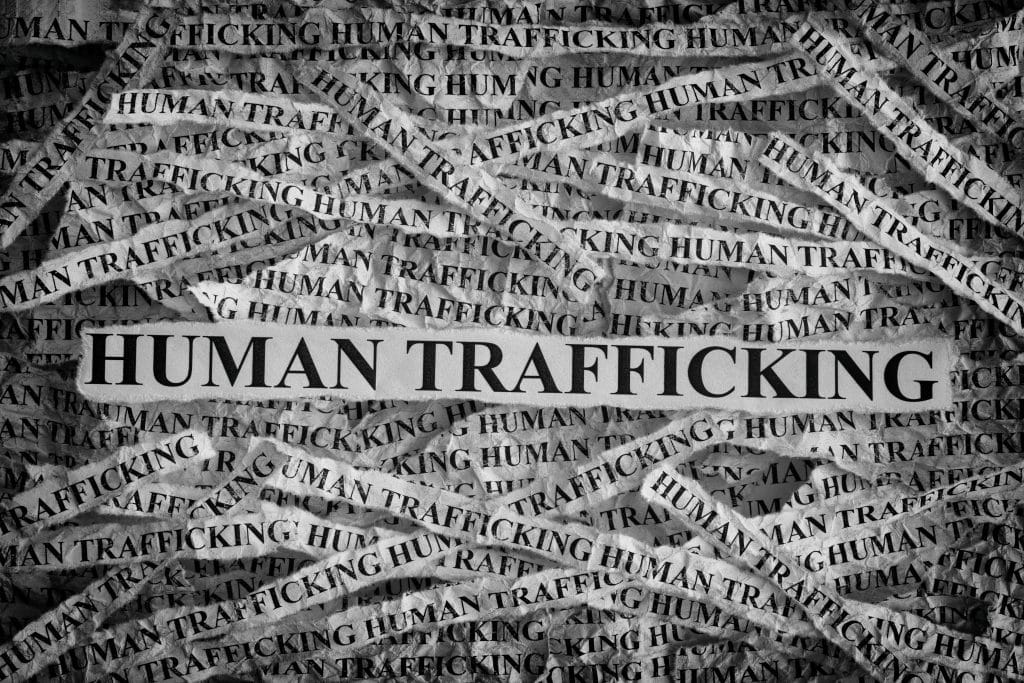Difference between "Slavery" and the Quran's "Ma Malakat Aymanukum"
Traditionally, slavery is a global institution defined as a systematic capture and enslavement of individuals, mainly during wars or raids, with the aim to sell them in to someone's ownership, like a master. In our times "slavery" is considered a derogatory term, especially when studying from the viewpoint of Western secular education system that permeates majority of the universities, schools and colleges across the globe including the Eastern part of the world, post colonization. The term brings to mind the Trans Atlantic Slave Trade, an enterprise initiated by European Colonization of the African continent and the transportation of mainly black slaves to the Americas. A brutal chapter of world's slave history.
However, when we talk of slaves or slavery from the perspective of the Quran and Islamic teachings and history, it is not considered evil and abhorrent where all types of exploitation is permitted by the owners. The relationship expected between a slave or a servant with his or her master or mistress is more like a son's or a daughter's relationship with their guardian who acts like a parent. The relationship is that of an individual under the care of someone who is obligated to provide them food, shelter, clothes, financial assistance, emotional care and by doing so in return expects and deserves that individual's assistance, cooperation, trust, respect. It is a relationship of a family member living under a house where one has more authority over an another.
What is most important to note is that the term "slaves" or "slavery" in not the correct translation of what is referred to in the Quran. The term used in the Quran for ownership of an individual by their master is "ma malakat aymanukum" correctly translated as "those whom your right hand possess" or "those whom you rightfully possess". According to modern history the term "slave" comes from slavs (saqaliba in Arabic), a people that inhabited the region of Eastern Europe and Central Asia or Eurasia, captured in large numbers and sold in Europe during medieval age, considered as most precious captives by the ruling states of the time.[1] Both terms, "ma malakat aymanukum" and "slave" do not have anything in common except for the basic meaning of someone under captivity. The Quranic Arabic term has a much more comprehensive meaning because it defines the relationship between the owner and his captive and expresses their rights and obligations towards each other.
Are the Quran Verses of Ma Malakat Aymanukum Still Applicable in our Times?
With Islamophobia at its peak, Muslims are inquired many questions on Islam including questions on slavery because Islamic history too has its own long chapter of dealing with male, female and young children as captives. Questions such as "how are Quran verses still applicable in our times when there is no slavery?" express extreme ignorance of the persons inquiring. Either they are ignorant of the lie that "slavery does not exist anymore" or just choosing to deceive themselves. This is because in our times, slavery has assumed the disguise of something called Human Trafficking. As the UN marked the World Day Against Trafficking, news agency Al Jazeera reported that Human trafficking has become a multibillion-dollar industry,[2] affecting nearly every country in the world! Millions of men, women and children are trafficked to other countries or within their own. From households, farms, factories, on the seas, in mines and on the streets, providing cheap labour for mining, agriculture, food, entertainment, and commercial sex industries. They may also be subject to abuse, forced into crime, or recruited for conflict. Sounds like medieval age? Its not, its the reality of our "modern and enlightened" 21st century!
Those who claim that "slavery ended" blindly accept the Universal Declaration of Human Rights (UDHR), an old piece of paper from 1948 whose articles prohibit only in writing, slavery, sexual exploitation, child labour. etc.[3] Despite the fact of this declaration slavery is not only active around the globe but in fact is being practiced today in the worst forms than it ever has in humankind history because there is no legislation that can regulate it. This is all because in absence of government supervision and laws to regulate the process of sale and purchase, the organized criminals have filled the vacuum and the trafficked persons are completely at their mercy. Had there been legal markets like medieval Islamic era, where government officers and law enforcement present, the exploitation would not be as such.
World leaders and champions of human and women rights that stand on UN and EU podiums, do nothing more than pay lip service to eradicating slavery and exploitation. In fact many of them are directly and indirectly, behind the scenes, involved and gain from this lucrative black market of human trafficking. According to the latest estimates as reported by the UN Human Rights news,[4] today over 40 million people are victims of slavery.
With slavery still being active global phenomena, it is a blessing that there is book on earth that Allah ﷻ, the Creator of all humankind, delivered almost 15 centuries back that guides towards rights and obligations between owner and his captive, it clarifies what is prohibited and what is permitted, with constant reminders to be conscious of accountability before Him on Judgment Day. Today we notice the divine wisdom of those verses because despite all international agreements under the aegis of the world's powerful countries like USA, Russia, China and the West (the permanent UN security council members), who are not Muslim, the world has failed to stop the exploitation of powerful over the weak. Hence we are proud that not only does the Quran stipulate guidelines for owners on how to treat "those whom their right hand possess" but also blessed us with the example of His beloved Prophet Muhammad ﷺ who treated his servants better than his ownself. Notice that I used the term "servant" because if owner treats his subordinate better than his ownself, then its best to avoid derogatory term "slave" for those under his authority. Zayd ibn Harith (r.a) was captured and sold in Makkah and came under ownership of Prophet Muhammad ﷺ. When Zayd’s family came to know of his presence in Makkah and they wanted to purchase him back, the Prophet ﷺ did not want any price and instead decided to free him. But Zayd (r.a) rejected and preferred to live with the Prophet ﷺ . He said “for I have seen something in this man, and I am not the kind of person who would ever choose anyone in preference to him.” Who wants to reject his own family for his owner? Umm Ayman was a freed servant of the Prophet ﷺ. She was like his mother and due to his kindness continued to serve even after she had been freed.[5] Anas ibn Malik (r.a) served as a servant of the Prophet ﷺ for ten years, said "By Allah, he never even said to me, “Uff! (Ugh)” He never said harshly for anything, “Why did you do that?” or, “Why did you not do that?”"[6] The world should learn, especially in this age of extreme exploitation, from Prophet Muhammad's example on how to deal mercifully with those under their authority (Al Quran 33:21).
The war ravaged countries in Africa, Middle East, and their weak economies as a result of corruption is causing young men and women to escape to other stable countries and turn towards Europe. When champions of human rights and democracy put economic sanctions on Iraq in the 1990s pushing them in to poverty and then declared illegal war on the country in 2003, it descended in to civil war which caused thousands of young Iraqis to flee in to Syria and other parts of Middle East. Estimates say about 50,000 Iraqi women were forced into prostitution, women whose husbands or fathers had been killed.[7] After the war in Syria in 2011, thousands of women were lured by traffickers in to Lebanon and other parts of Middle East to become prostitutes.[8] Same goes for women from Americas or African countries that escape to Europe, like Nigerian women in Italy, Spain etc.[9] These women are exploited, abused, raped because they became public property. If given the opportunity they would immediately flee from that disgusting lifestyle. According to UNDOC the most targeted for trafficking are female - 72 percent of victims are women and girls - while sexual exploitation remains the most detected reason for trafficking.[10] Had these women, like those in the medieval Islamic history, were allowed to be purchased by men to join their families in to private homes, they would be clothed, fed, honored, and have rights almost the same as a wife (Al Quran 4:25, 4:36, 23:6). In fact they can be entitled to their owners estate and wealth, and if gave birth to children, would be as equal as a wife, the child would be the owners legal heir (Al Quran 16:71). They could even marry their owner and become a wife as the Prophet ﷺ blessed "a slave who discharges properly the duties towards Allah and towards his master; and a man who possesses a slave-girl and teaches her manners, educates her well, and frees her and then marries her.''[11] Alternatively they could also be purchased for employment as they did during Ottoman era, such as maids, personal attendants (Al Quran 24:58), nannies, washerwomen, cooks, or similar domestic responsibilities such as assisting women of that family (Al Quran 24:30, 24:58). Hence in Islamic history the role of female slaves was not always intimate relations with men. Similarly young men that are fleeing these conflict or corruption ridden territories are forced in to exploited labor force, crime or becoming mercenaries. Had they been allowed through a legal channel to be purchased by wealthy men and women, they could be part of their family, get education (Al Quran 4:36), learn skills for self sufficiency or even become business partners (Al Quran 24:33) especially if their owners do not have sons of their own. If the captives cannot buy their freedom by repayment of their purchase price then masters are encouraged to forgive their debt as per several Quran verses (Al Quran 2:280) because the Prophet ﷺ said "your debtor is your captive; be, therefore, truly kind to your captive"[12]
Since global institutions like United Nations and international political powers have failed in eradicating the slavery and all forms of exploitations linked to slavery, it would be fair to say that Quran verses on rights and obligations between an owner and their slave are very much applicable today including Prophet Muhammad's practical example on how to treat them.
References:
[1] Online Etymology Dictionary - slave (n.)
https://www.etymonline.com/word/slave
[2] World Day Against Human Trafficking: Must-Watch Documentaries - 30 Jul 2019 12:46 GMT - https://www.aljazeera.com/programmes/specialseries/2019/07/world-day-human-trafficking-watch-documentaries-190723065154146.html
[3] Universal Declaration of Human Rights, Articles 3 - 5
https://en.wikipedia.org/wiki/Universal_Declaration_of_Human_Rights
[4] Over 40 million people still victims of slavery - 2 December 2018
Human Rights
https://news.un.org/en/story/2018/12/1027271
[5] Zayd ibn Haritha (r.a) & Umm Ayman (r.a)
https://en.wikipedia.org/wiki/Umm_Ayman
https://en.wikipedia.org/wiki/Zayd_ibn_Harithah
[6] Jami at-Tirmidhi 2015 - Sunnah.com
https://sunnah.com/tirmidhi/27/121
[7] '50,000 Iraqi refugees' forced into prostitution, By Nihal Hassan in Damascus
Sunday 24 June 2007
http://www.independent.co.uk/news/world/middle-east/50000-iraqi-refugees-forced-into-prostitution-5333575.html
[8] The Syrian women and girls sold into sexual slavery in Lebanon, by Daniela Sala
11 Feb 2020
https://www.aljazeera.com/indepth/features/syrian-women-girls-sold-sexual-slavery-lebanon-200128131326841.html
[9] Spanish police break up Nigerian sex trafficking gang, By Sam Piranty BBC News, 23 March 2018
https://www.bbc.com/news/world-africa-43514125
[10] UNODC - Global Report on Trafficking In Persons 2018
https://www.unodc.org/documents/data-and analysis/glotip/2018/GLOTiP_2018_BOOK_web_small.pdf
[11] Sahih al-Bukhari 2547 - Sunnah.com
https://sunnah.com/bukhari/49/31
[12] Message of the Quran - Asad Translation & Commentary, Surah Al Insaan (76th Chapter), Note 11





Post a Comment
Post a Comment